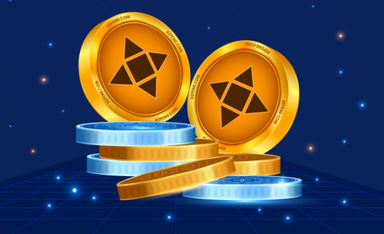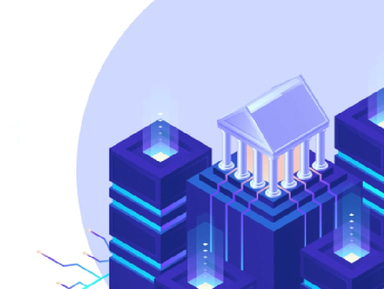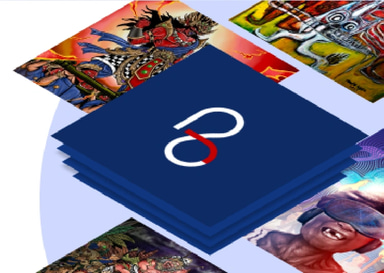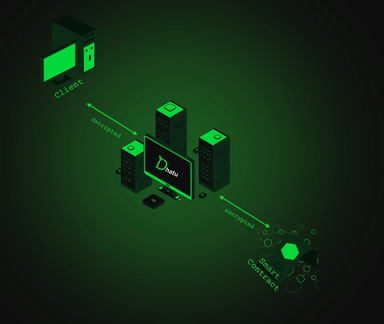읽기
편집
역사
알림
공유
MandalaChain
MandalaChain is a Polkadot-based blockchain that aims to integrate government and enterprise applications with public and retail sectors, facilitating interoperability and transactions across these domains.[1][2]
Overview
MandalaChain, established in 2023 by I Gede Putu Rahman Desyanta and Michael Bennallack, is intended to link emerging blockchain markets with global ones. Initially concentrating on Indonesia, the platform aims to build on the country's tech-savvy population and supportive regulatory environment to encourage blockchain adoption.
MandalaChain's approach includes developing partnerships within government and enterprise sectors, creating private, permissioned blockchain networks that integrate with public, permissionless systems, and facilitating cross-chain value transfers to meet current and future needs in Indonesia.[1][2][3][4][5][6]
Products
Dhatu Gate
Dhatu Gate aims to ease the transition from Web2 to Web3 by integrating Web3 functionality with a Web2-like interface. It provides a technology stack that connects traditional web applications with Web3 features. Additionally, Dhatu Gate offers a blockchain-based storage solution that ensures ACID compliance for data transactions through smart contracts and supports the storage of text data such as JSON.[1][11]
IDCHAIN
MandalaChain's IDCHAIN aims to establish a secure digital identity infrastructure on the .id domain, enabling interactions with government and enterprise portals. This system is intended to support various sectors, such as banking, healthcare, insurance, and education.
The platform is also involved in several pilot projects. These include integrating blockchain with over 90 banks and 20 hospitals, exploring gold tokenization with an Indonesian gold corporation, and collaborating with data providers on blockchain infrastructure. Additionally, MandalaChain is working with BKRAF to develop authentication solutions for products.[12]
Architecture
MandalaChain’s architecture is based on the Substrate framework of the Polkadot SDK, utilizing Rust and compiled to Native and WebAssembly (WASM) runtimes. It operates through a decentralized network of nodes, which provide essential services and can be customized to align with specific requirements.[9]
Ecosystem
Layer 1 Networks
Madya Main Network
Madya is the mainnet of MandalaChain, designed to incorporate features tested and proven on the Niskala testnet. It aims to provide similar functionality, emphasizing the security and stability demonstrated on the testnet.[8]
Niskala Test Network
Niskala is the test network for MandalaChain, where features are tested prior to their deployment on the Madya mainnet. It aims to replicate the mainnet’s functionality and periodically tests next-generation features for potential future inclusion.[8]
Mandala Chain Foundation
The MandalaChain ecosystem is overseen by the Mandala Chain Foundation (MCF), which is responsible for managing the token, treasury, and community development. MCF aims to handle tokenomics, including treasury governance and token distribution, while also overseeing community governance. The foundation intends to transition to a DAO-based model as the ecosystem progresses, focusing on establishing structures and practices to support this shift.[3][7]
Baliola
In the MandalaChain ecosystem, Baliola functions as the engineering division, responsible for technical governance, blockchain maintenance, development, and security. It aims to leverage the MCF treasury to support the advancement of technical infrastructure and the development of Mandala Enterprise solutions.[3]
Republik Labs
In the MandalaChain ecosystem, Republik Labs (RL) is responsible for community and ecosystem development. RL aims to manage social platforms and online communities through its partnership with Republik Rupiah and to support project incubation and partnerships to enhance MandalaChain’s visibility. It also seeks to oversee public initiatives and the global ambassador program to promote MandalaChain in Indonesia and Southeast Asia.[3]
Tokenomics
Kepeng ($KPG)
The Kepeng token, KPG, is named after an ancient Indonesian currency introduced during the Majapahit Empire through trade with China. Kepeng coins, made of tin or copper and characterized by their circular shape with a central square hole, aim to represent the historical integration of this currency into Indonesian culture.[3]
Allocation
The allocation of Kepeng tokens, KPG, is structured as follows:
- Team & Advisors: 15% (150 million tokens) with a 12-month cliff and 36-month linear vesting.
- Pre-seed: 6% (60 million tokens) with a 3-month cliff and 24-month linear vesting.
- Seed: 5% (50 million tokens) with a 3-month cliff and 24-month linear vesting.
- Public (Launchpads): 6% (60 million tokens) with no cliff and 12-month linear vesting.
- Parachain: 8% (80 million tokens) with 10% released at the Token Generation Event (TGE) and the remainder vesting linearly over 96 weeks.
- Ecosystem Grants: 25% (250 million tokens) with 25% released at the TGE and the rest vesting linearly over 48 months.
- Treasury (Liquidity, Reserve): 20% (200 million tokens) with 40% released at the TGE and the remainder vesting linearly over 36 months.
- Rewards (Block Rewards, Staking Rewards): 15% (150 million tokens) with 15% released at the TGE and the rest vesting linearly over 36 months.[10]
MandalaChain Academy
The MandalaChain Academy aims to advance local talent and increase blockchain awareness. It includes Government Blockchain Bootcamps to explore use cases with Indonesian departments, and the Blockchain Developer Academy to upskill developers through expert-led training. Additionally, it offers Blockchains for Enterprise Bootcamps to support enterprises in transitioning to blockchain technology using tools such as Dhategate.[3]
Team
The MandalaChain team consists of the following individuals:
- I Gede Putu Rahman Desyanta: CEO of Baliola and co-founder of MandalaChain.
- Michael Bennallack: CEO of Republik Labs and co-founder of MandalaChain.
- Mat Paul: CEO of Mandala Chain Foundation and co-founder.
- Fransiskus Paranso: Product Director.
Marketing, Business, and Academics:
- Venkatesh Harinathan: Director of Marketing & Culture, Mandala Chain Foundation.
- Adrian Keet: Head of Academy, Mandala Chain Foundation.
- Mat Cook: Head of Business Development, Mandala Chain Foundation.
Technical Team:
- Johannes Agung Zhaan: Lead Blockchain Developer.
- Adi Wahyu Widodo: System Admin and Cyber Security, Baliola.
- Arya Rama: Frontend Developer.
- Abhijana: Backend Developer, Baliola.
- Langgam Rapsody: Backend Developer, Baliola.
- Raka Murdiarta: Backend Developer, Baliola.
Legal and Operational Team:
- Rena Wida Arias: COO, Baliola.
- I Putu Krisnawan: Legal Officer, Baliola.
- Greatta Agatha: Administrative Officer, Baliola.
- Jake Hartley: Head of Risk & Compliance, Mandala Chain Foundation.[5]
MandalaChain
커밋 정보
편집자
편집 날짜
August 18, 2024
피드백
평균 평점
경험은 어땠나요?
빠른 평가를 해서 우리에게 알려주세요!
트위터 타임라인
로딩 중
미디어







참고 문헌.
[1]
[2]
[3]
[4]
[5]
[6]
[7]
[8]
[9]
[10]
[11]
[12]





